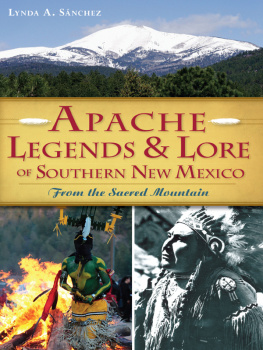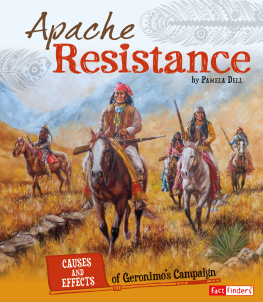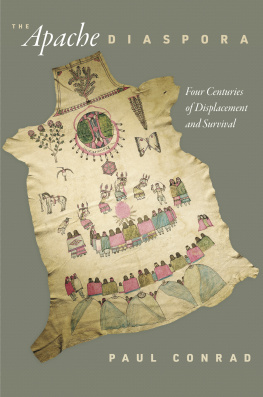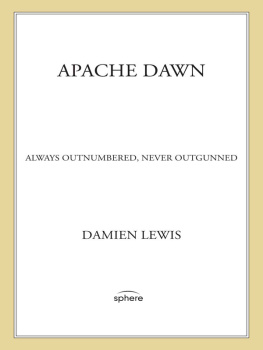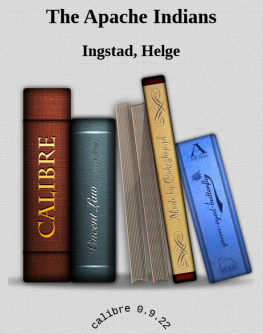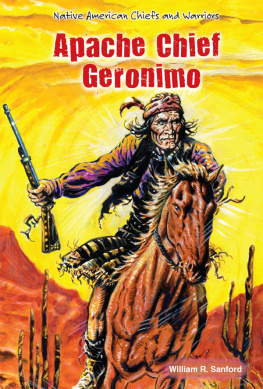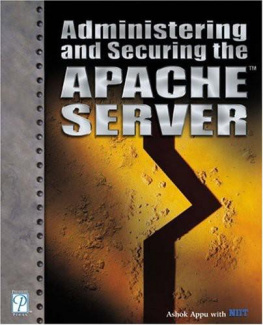Sherry Robinson - Apache Voices: Their Stories of Survival as Told to Eve Ball
Here you can read online Sherry Robinson - Apache Voices: Their Stories of Survival as Told to Eve Ball full text of the book (entire story) in english for free. Download pdf and epub, get meaning, cover and reviews about this ebook. year: 2016, publisher: University of New Mexico Press, genre: Art. Description of the work, (preface) as well as reviews are available. Best literature library LitArk.com created for fans of good reading and offers a wide selection of genres:
Romance novel
Science fiction
Adventure
Detective
Science
History
Home and family
Prose
Art
Politics
Computer
Non-fiction
Religion
Business
Children
Humor
Choose a favorite category and find really read worthwhile books. Enjoy immersion in the world of imagination, feel the emotions of the characters or learn something new for yourself, make an fascinating discovery.

- Book:Apache Voices: Their Stories of Survival as Told to Eve Ball
- Author:
- Publisher:University of New Mexico Press
- Genre:
- Year:2016
- Rating:3 / 5
- Favourites:Add to favourites
- Your mark:
Apache Voices: Their Stories of Survival as Told to Eve Ball: summary, description and annotation
We offer to read an annotation, description, summary or preface (depends on what the author of the book "Apache Voices: Their Stories of Survival as Told to Eve Ball" wrote himself). If you haven't found the necessary information about the book — write in the comments, we will try to find it.
In the 1940s and 1950s, long before historians fully accepted oral tradition as a source, Eve Ball (1890-1984) was taking down verbatim the accounts of Apache elders who had survived the armys campaigns against them in the last century. These oral histories offer new versions--from Warm Springs, Chiricahua, Mescalero, and Lipan Apache--of events previously known only through descriptions left by non-Indians.
A high school and college teacher, Ball moved to Ruidoso, New Mexico, in 1942. Her house on the edge of the Mescalero Apache Reservation was a stopping-off place for Apaches on the dusty walk into town. She quickly realized she was talking to the sons and daughters of Geronimo, Cochise, Victorio, and their warriors. After winning their confidence, Ball would ultimately interview sixty-seven people.
Here is the Apache side of the story as told to Eve Ball. Including accounts of Victorios sister Lozen, a warrior and medicine woman who was the only unmarried woman allowed to ride with the men, as well as unflattering portrayals of Geronimos actions while under attack, and Mescalero scorn for the horse thief Billy the Kid, this volume represents a significant new source on Apache history and lifeways.
Sherry Robinson has resurrected Eve Balls legacy of preserving Apache oral tradition. Her meticulous presentation of Eves shorthand notes of her interviews with Apaches unearths a wealth of primary source material that Eve never shared with us. Apache Voices is a must read!--Louis Kraft, author of Gatewood & Geronimo
Sherry Robinson has painstakingly gathered from Eve Balls papers many unheard Apache voices, especially those of Apache women. This work is a genuine treasure trove. In the future, no one who writes about the Apaches or the conquest of Apacheria can ignore this collection.--Shirley A. Leckie, author of Angie Debo: Pioneering Historian
Sherry Robinson: author's other books
Who wrote Apache Voices: Their Stories of Survival as Told to Eve Ball? Find out the surname, the name of the author of the book and a list of all author's works by series.

